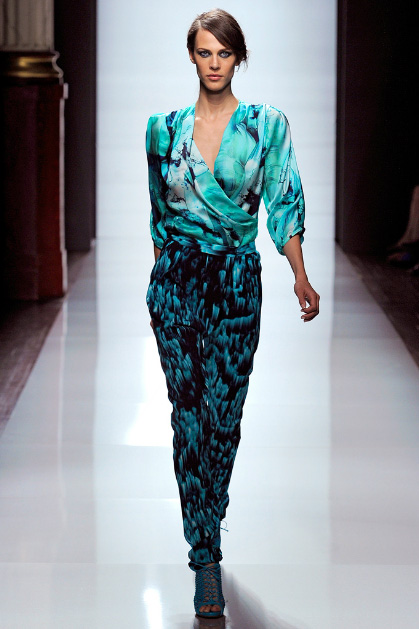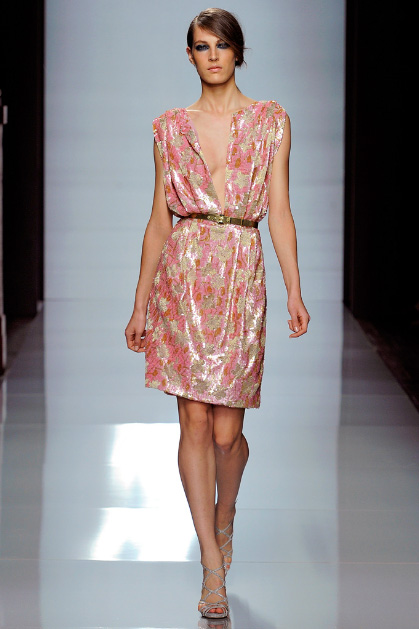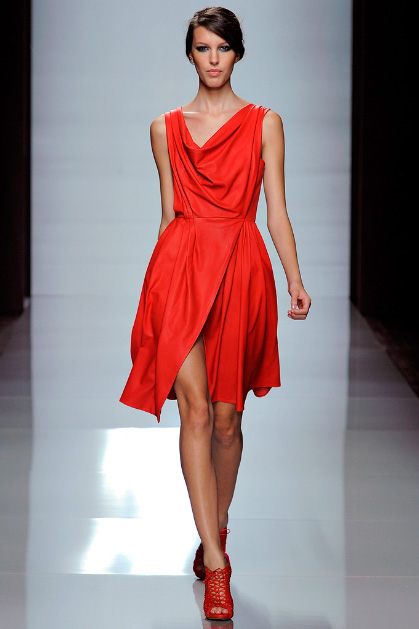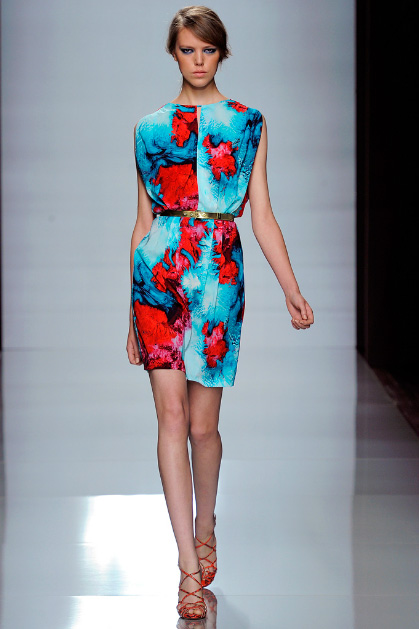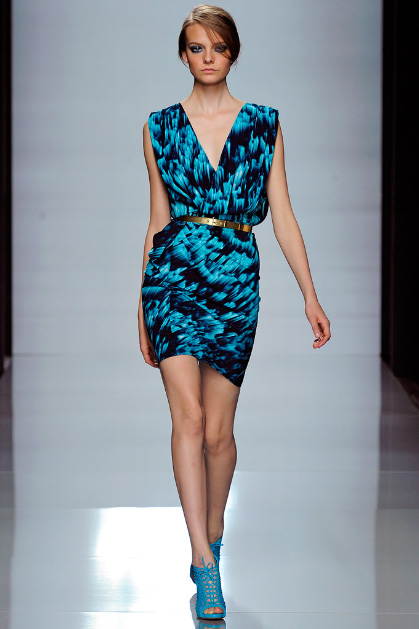Paris fashion weekAfter the last model finished her final walk at Emanuel Ungaro, there were a few beats of confusion as showgoers stayed in their seats. Would someone be taking a bow? There was the briefest glimpse of a figure who turned out to be the house's newly named designer, Jeanne Labib-Lamour.
After officially parting ways with Giles Deacon just weeks ago, the house of Ungaro is clearly attempting a new tack, going the route of Balmain and, for a couple of seasons, Dior, by appointing an unknown designer from within in place of a star. Still, today's collection, at least going by its awkwardly worded show notes, was "the result of conscientious teamwork." And in its very commercially slanted pragmatism, it had the feel of design by committee—though certainly not an untalented one. The collection ably touched on all the house's codes of sexy, cowled, and ruched jersey dresses, and soft tapered silk pants and jumpsuits in splashy prints, these inspired by NASA aerial images that looked like abstract florals. There were ruffles on peplumed jackets and tiered skirts.
Certainly, for a house that has in recent seasons seen the extremes of star-shaped pasties and a stuffed sheep, it was markedly restrained. Many looks, including unembellished jersey dresses, were cinched with a simple, slim gold belt, and aside from a few sequined evening pieces and the plissé appliqué snaking around necklines, a light hand was taken with excess flourishes. What happens next at Ungaro remains to be seen, as does the question of whether Labib-Lamour will be another designer exiting the house's rather active revolving door.
Fashion Brand: Emanuel Ungaro | www.ungaro.com
Emanuel Ungaro (Emanuel Ungaro) was born in an Italian immigrant family in 1955, 22 years old, he came to Paris, Courreges dry seasons, go BALENCIAGA men, for six years. In 1964, Emanuel Ungaro (Emanuel Ungaro) opened his own fashion house, four men seamstress. In Paris, a small unit in operation, Ungaro's first series of 20 sets of coats.
2025Fashion BrandsThis is the world of fashion on cbamd.com
Clothing brand, Fashion Brands, Brand joined, Agents joined, clothing Daigou, stores, fashion brand, purchase, purchasing
More then 9999 fashion brands in cbamd.com from China, Japan, Korea, United States, Canada, Australia, France, Italy, Spain, Germeny, Etc Paris fashion week, Milan fashion week, London fashion week, NewYork fashion week, HongKong fashion week, Tokyo fashion week, Sydney fashion week, Canton fashion week, Shanghai fashion week, Etc.
You can knowledge more! Select brand category you want to Fashion brands Join, wholesale, purchasing, purchase, agent. Need Quality Manufacturers, Products and Suppliers?
CBAMD.COM C - China B - Brand A - Apparel M - Marketing D - Development 


